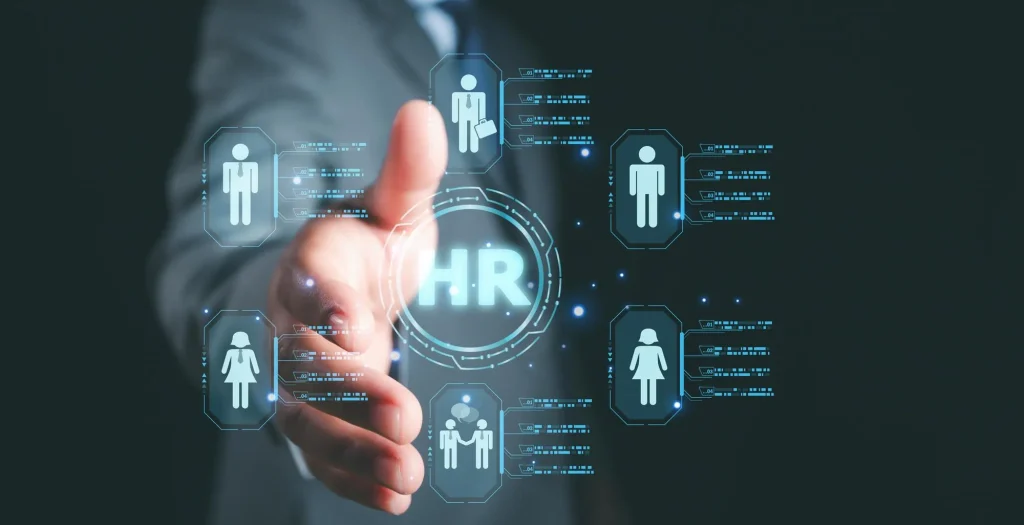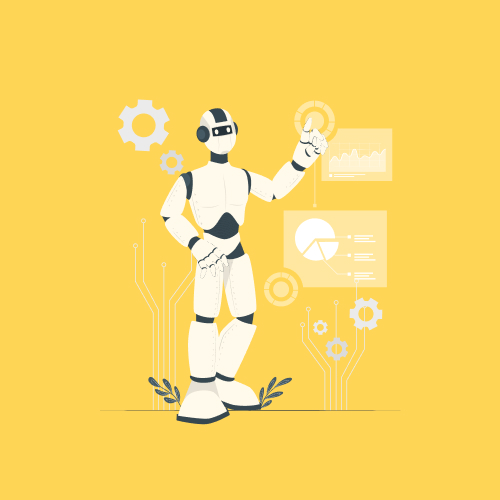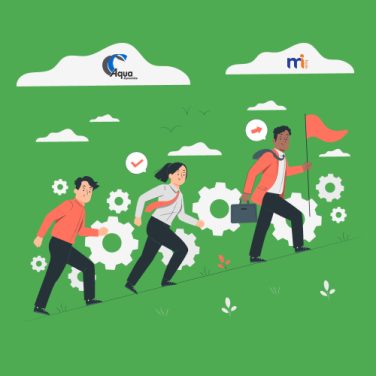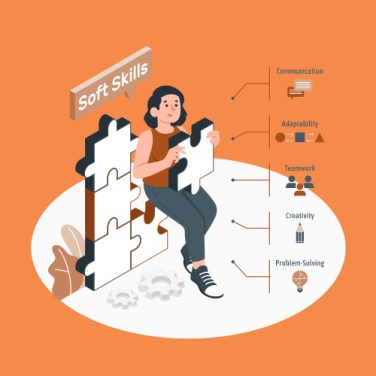Artificial Intelligence (AI) is revolutionising the way organisations approach employee experience, reshaping the landscape of HR practices.
By leveraging AI-driven insights, HR departments are better equipped to enhance employee satisfaction, engagement, and productivity. This transformation is not just about automating tasks but about optimising the overall workplace experience.
AI-driven HR solutions enable businesses to make data-driven decisions, unlocking employee potential and increasing workforce productivity.
Shaping the future of work
As AI technologies continue to evolve, the future of work promises greater flexibility and efficiency.
AI’s transformative power allows HR professionals to adapt more effectively to dynamic workplace changes. With real-time insights into team mood and employee engagement levels, AI offers strategic advantages that foster a positive workplace culture.
The integration of AI into HR practices not only streamlines operations but also provides a comprehensive overview of employee well-being. This means that HR professionals can identify and address issues proactively, ensuring that their workforce remains engaged and motivated.
A new era in HR

AI is pioneering a new era in HR, fundamentally altering how organisations approach workforce management.
From seamless recruitment processes to enhanced talent acquisition and onboarding, AI-driven innovations are reshaping the HR landscape to improve employee experience and productivity.
- Seamless recruitment: AI simplifies the recruitment process by efficiently managing applicant tracking systems, streamlining applications, scheduling interviews, and identifying suitable candidates quickly, making onboarding the gateway to sustained employee engagement.
- Talent acquisition and onboarding: AI optimises talent acquisition, transforming companies into talent magnets. Organisations can seamlessly post jobs, streamline applications, and identify the perfect talent regardless of location. By automating repetitive tasks, HR teams can focus on strategic decisions that unlock workforce productivity.
- Enhanced productivity and engagement: AI in HR extends beyond recruitment. It plays a crucial role in monitoring and boosting employee engagement by providing real-time insights into employee sentiment. Such insights enable HR departments to tailor strategies that enhance the overall work environment, increasing productivity levels.
These AI-powered innovations are not only enhancing operational efficiency but are also pivotal in creating a more engaging workplace environment. As the role of AI expands, it holds the potential to significantly influence future employee experiences, ensuring that HR remains a strategic partner in organisational growth.
Emerging HR skills in the AI era
The introduction of AI in HR compels a shift in the skills and competencies required, specifically emphasising data literacy, AI integration, and ethical decision-making.
The future of HR demands expertise in data analysis and AI integration. HR professionals must become adept at leveraging AI tools to glean actionable insights from data, enabling strategic decisions that enhance employee experience.
Skills like predictive analytics, understanding machine learning algorithms, and interpreting AI-driven insights will be crucial in navigating the new HR landscape.
The importance of ethical practices in AI cannot be overstated. HR professionals must balance technological capabilities with ethical considerations, ensuring transparency and privacy protection in AI applications. This will require a robust understanding of data privacy laws and ethical technology use.
Preparing for new job roles
As AI becomes an integral component of HR, it introduces new roles and responsibilities.
AI ethicists, data analysts, and AI specialists are emerging roles geared towards enhancing HR operations and maintaining ethical standards. These roles focus on ensuring that AI implementation aligns with organisational values while optimising workforce management.
The transformation also emphasises reskilling as essential for existing HR teams. Organisations need to invest in continuous learning and development programs to equip their teams with the necessary skills to thrive in an AI-driven HR environment.
Understanding AI’s impact on HR jobs and skills is crucial for future-focused HR professionals determined to harness AI’s benefits efficiently.
Embracing these changes and preparing for evolving jobs and skills in HR will empower organisations to fully leverage AI, creating a competitive advantage in delivering exceptional employee experiences.
Navigating AI challenges
AI brings a wealth of opportunities to enhance the employee experience and optimise HR strategies. However, its integration also presents challenges that organisations must carefully navigate to fully realise AI’s transformative benefits.
- Privacy concerns: One of the chief challenges of AI in HR is safeguarding employee privacy. AI systems constantly process and analyse vast amounts of personal data. It’s crucial for organisations to implement robust privacy measures that comply with data protection regulations. Ensuring transparent data usage is fundamental to maintaining employee trust.
- Ethical considerations: With AI-driven decisions influencing sensitive HR areas like recruitment, performance evaluation, and employee engagement, ethical use becomes paramount. Ensuring AI algorithms are free from bias involves establishing guidelines for fair employment practices. Organisations should prioritise ethical AI use to ensure decisions are fair and inclusive.
- Implementing strategy: Successful AI implementation requires comprehensive planning. Organisations must build a strong data foundation and integrate AI tools with existing HR technologies. Additionally, defining clear business outcomes and training HR teams to navigate AI’s complexities are vital components of effective AI adoption.
While AI systems can automate repetitive tasks, enhance productivity, and offer data-driven insights critical for strategic HR decisions, balancing its capabilities with human judgment is essential.
HR professionals should act as custodians of ethical AI use, combining AI insights with their expertise to guide actions and uphold ethical standards in decision-making processes.
In embracing AI, organisations have the opportunity to transform employee experience, streamline operations, and foster a supportive workplace culture. Overcoming these challenges holds the key to ensuring AI not only complements human roles but enhances them, delivering a future where AI-driven solutions empower employees and add significant value to HR functions.
Real-time well-being insights
The introduction of AI within HR practices has allowed organisations to access real-time insights into employee well-being, transforming traditional engagement strategies.
Using AI-powered tools such as MiHCM’s virtual assistant MiA, HR departments can gather sentiment data and identify improvements needed to ensure a healthy work environment. This capability provides managers with a vital understanding of team mood and needs, making timely interventions possible to prevent silent struggles.
Enhanced employee engagement is another significant feature of AI integration. With tools like MiHCM, employees can express their workplace experiences through HR connections and pulse surveys, fostering a more engaged workforce.
- Real-time feedback: AI facilitates continuous engagement by capturing employee feedback at scale. This feedback mechanism supports strategic decision-making towards enhancing workplace satisfaction.
- Improved engagement strategies: With AI insights, HR professionals can craft personalised engagement plans that resonate with the unique needs of different employee segments.
- Workplace inclusivity: AI-driven analytics provide a window into the diverse attributes of the workforce, enabling policies that champion inclusivity and diversity.
Managing ethical considerations
While AI offers tools for improved engagement and well-being, ethical considerations must also be addressed. Adhering to data privacy regulations and ensuring transparency are critical to building trust. Organisations should include employees in AI-driven changes, clearly communicate AI uses, and respect privacy rights to strengthen employee trust.
These advancements highlight the future of employee experience with AI, offering not just technological prowess but a path towards improved well-being and engagement. For HR professionals aiming to stay ahead, AI-driven solutions offer a comprehensive approach to redefining workplace interactions and morale.
Shaping the future with AI-driven solutions
Adopting AI in HR fosters a dynamic work environment where employee engagement and satisfaction thrive.
Solutions like MiHCM’s comprehensive HR suite illustrate this potential by optimising processes such as talent acquisition, onboarding, and employee well-being monitoring. These smart tools help streamline operations, encouraging a more engaged and productive workforce.
Additionally, AI’s ability to deliver real-time insights and automate repetitive tasks allows HR teams to focus on strategic initiatives that promote a positive workplace culture.
Call to action for AI integration
For HR professionals looking to enhance their operational frameworks, incorporating AI technologies offers a competitive edge. By leveraging AI, organisations can redefine performance management and employee satisfaction benchmarks.
Ultimately, AI empowers HR to lead with data-driven decisions, unlocking new potential and fostering a future where both employees and employers benefit from a balanced and innovative work environment.



